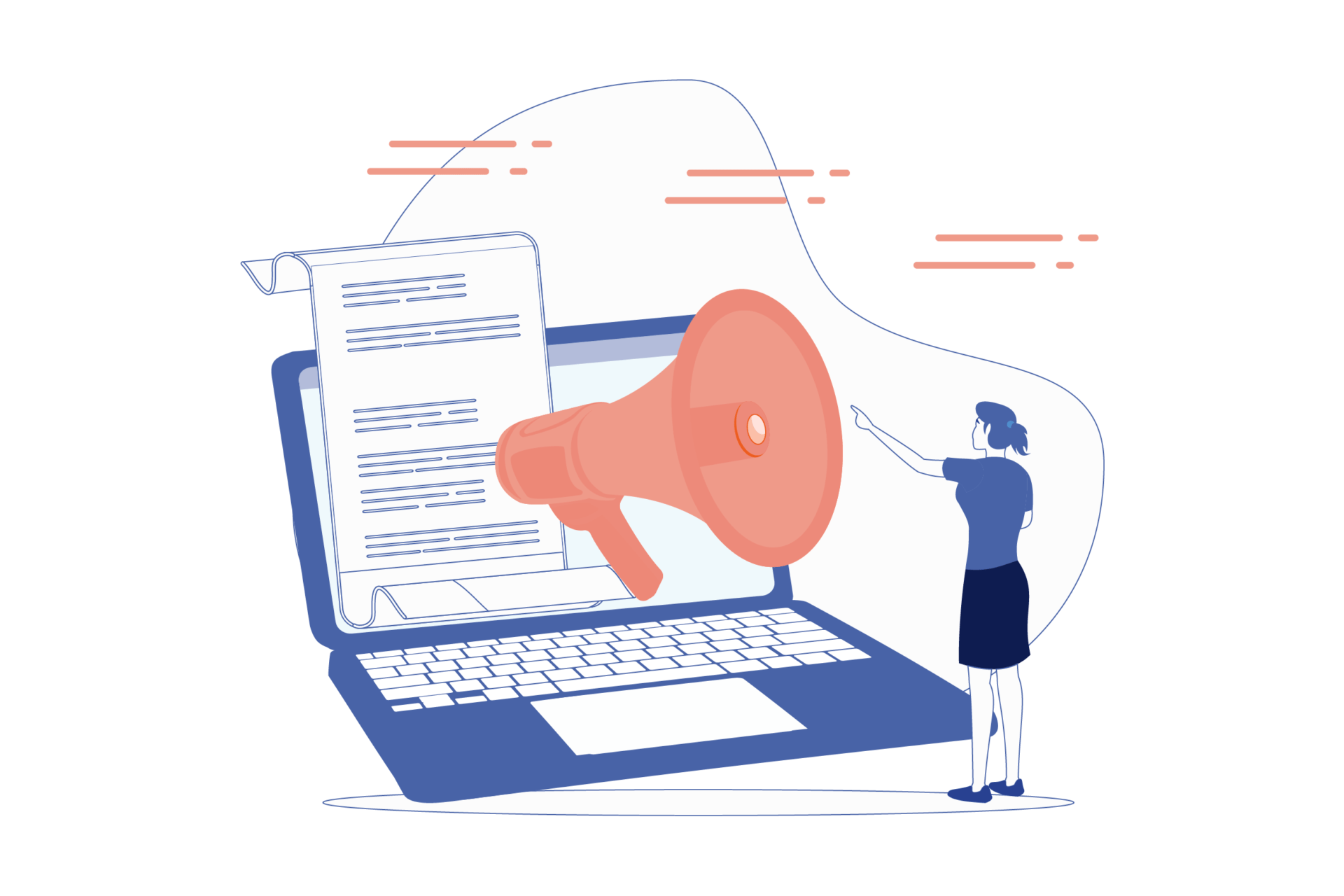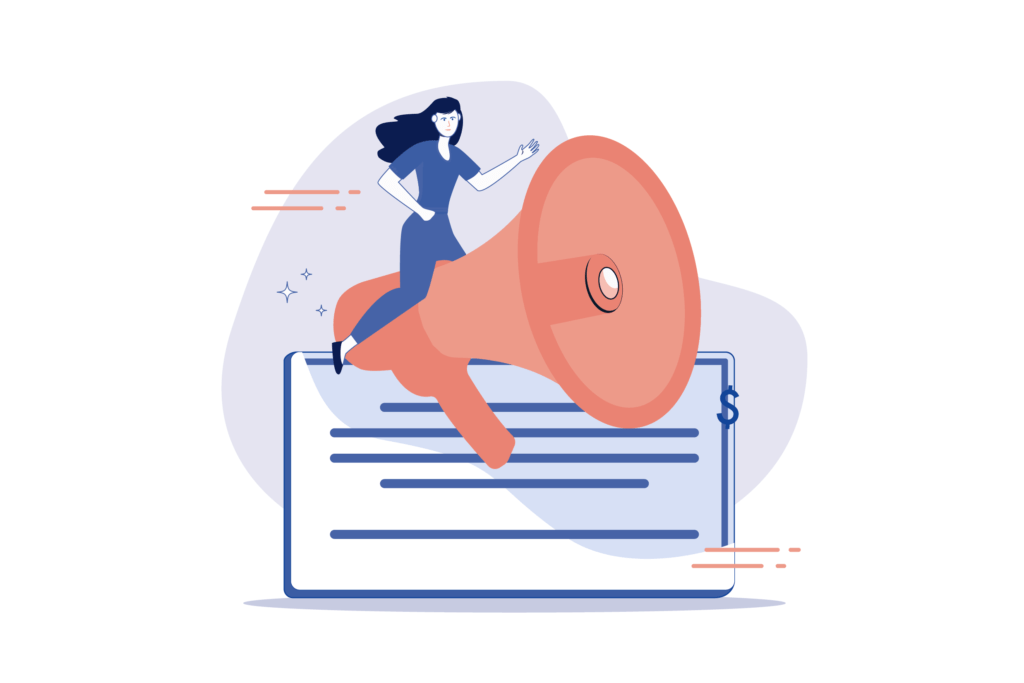Calls to action (CTAs) are everywhere on your website (especially on landing pages and product pages) as well as in email newsletters. They tend to consist of just a few words within a button. Since the concept of a CTA is simple, marketers often give them little though, turning their attention to other elements instead. However, a conversion ultimately comes down to whether or not a user clicks your CTA. To create the perfect call to action, you need to put a big emphasis on this little button.
1. Inspire Action
Every CTA should tell users to do something. However, it should never simply say “click here” — users want to know what will happen after they click. It could be that the button enables users to download premium content, sign up for a demo, subscribe to a newsletter, or make a purchase. Whatever it is, let users know.
Most of the time, you’ll want to keep your CTA to no more than five words. Anything longer takes away from the impact of the message. Having said that, a few additional words in a smaller font can sometimes encourage clicks — provided the extra words increase the appeal of the deal. Often, though, it makes more sense to include this additional information near the CTA. You’ll need to test what works best for your situation.
2. Avoid Standard Phrases
How many times have you seen “sign up,” “learn more,” or even just “go”? These are boring CTAs and inspire no emotion in users. Plus, it’s not clear what will happen next. The perfect call to action is creative and excites users. It’s even better still when the wording reflects your brand or promises to solve a problem.
3. Consider Using the First Person
Instead of addressing users as “you,” use the first person — such as in “Get my free trial.” This gives users the sense that the deal already belongs to them or is reserved for them. In one test, switching from second to first person increased clicks by 90 percent.
4. Highlight That Your Offer is FREE
If what you’re offering is free, this should be clear from the CTA. Users may be concerned that they’ll go through the effort of filling a form only to find there’s a payment at the end of it.
In the case your deal isn’t free, highlight some other incentive. Perhaps your offering is risk free, available to a limited number of people, or available for a limited time. It’s well known in marketing that urgency pushes people to take action when they may have otherwise ignored the message entirely.
5. Lead Users to the CTA
You may need to include additional information around the CTA to encourage users to click. This extra information could be a testimonial, the main benefit of your what you’re offering, a key statistic, or other details to set users’ minds at ease — such as that they won’t need to give you their credit card information, that the process will take less than a minute, or that they’ll receive access immediately. After users read this information, lead them to the CTA with directional cues like arrows or a face looking toward the CTA.
In addition, think carefully about the placement of this information around your CTA. The details above the CTA should be information users need before they click and the details below should add an incentive. This is important because users don’t read the content on a webpage at random — for the most part, they follow text from left to right, from the top of the page down.
6. Surround Your CTA with Whitespace
Even if you’re adding extra information around your CTA, you need to incorporate plenty of whitespace. A button surrounded by clutter both looks less appealing to click and runs the risk of being lost in the rest of your design.
The exception to this is CTAs for ecommerce. In this case, users are already expecting to find a button to add the item to their cart and want to see basic product information (including price) close to the CTA.
7. Use a Button
It needs to be clear that your CTA button is, indeed, a button. If the CTA looks like regular text, users may be unaware that it’s clickable and ignore it — this is a risk of using a minimalist web design. To give your CTA the appearance of a button, put a border around it, apply a shadow effect when users hover over it, and make it larger than the surrounding text.

8. Choose Your Button Shape
There are various different shapes and styles you can use for your CTA button. The most common are rectangles, either with square or rounded edges. Although many marketers have reported greater success with the rounded design, it’s always possible your audience responds better to square edges. You’ll need to test both to find out.
9. Make the Button Large Enough
Your CTA button must be large enough that it’s easy for users to click, even on a small mobile device. You also need to ensure the text is large enough to be legible. At the same time, you don’t want a button that takes up a huge part of the screen — this will appear intimidating and fewer people will want to click.
10. Choose the Right Font
You have a never-ending list of fonts to choose from, but the likelihood is there are only a few that will be right for your CTA. You want something similar to the fonts of the rest of your web design — but also a little different to help your CTA stand out. Instead of designing your CTA in isolation, check how the font looks alongside other elements on the page.
11. Use a Color That Pops
Another way to ensure your CTA stands out is through the right choice of color. Most web pages are white (or off-white). If this is the case for your website, a suitable color for your CTA could be one of your brand colors with white for the text. If your website uses something other than white as a background color, you’ll need to experiment to figure out what stands out.
12. Keep It Above the Fold
You may have the same CTA appear several times on the same page. This is useful in case some users fail to respond the first time and keep on scrolling. You can then persuade users to convert after they’ve read more of your content. Repeating your CTA further down the page is good practice, but the first button always needs to be above the fold.
It’s obvious that a CTA needs to be above the fold for a landing page — as you want it to be instantly clear to users how they can take action. However, marketers are sometimes concerned about pushing for conversions this early on other types of web pages. In fact, there’s one good reason why it’s risky to keep your CTA until the bottom of the webpage: you can’t rely on the fact that users will keep reading this long.
13. Create a Clear Hierarchy of CTAs
It’s also often necessary to have several different CTAs on the same page. However, one of these CTAs is always going to be the most important, whereas the rest offer alternative options. It needs to be obvious to users which button you want them to click. Not only will this drive users to the right button, it will also increase the chances they take action at all. This is because users who feel overwhelmed by choice are more likely to do nothing.
The best way to show hierarchy of CTAs is through your color choices. Make just the main CTA a color that pops and put the others in grayscale. Another option is to make all your other CTAs as simple links rather than buttons. Bear in mind you’ll need to test this tactic to make sure you do receive clicks.
A major part of creating the perfect CTA is testing every design choice. There’s no guarantee you’ll create the perfect CTA straight away if you simply copy what another brand is doing — what works for one audience may fail for another. Instead, you need to run A/B tests to tweak your CTAs until you’re maximizing conversions.
A virtual assistant from MYVA360 can run these A/B tests for you, creating reports of the results. When you sign up for a dedicated virtual assistant, you can receive expert support from our extended team of digital marketers. Schedule a consultation to receive a 10-percent discount on all our services.





